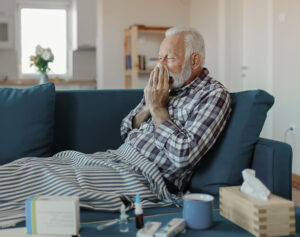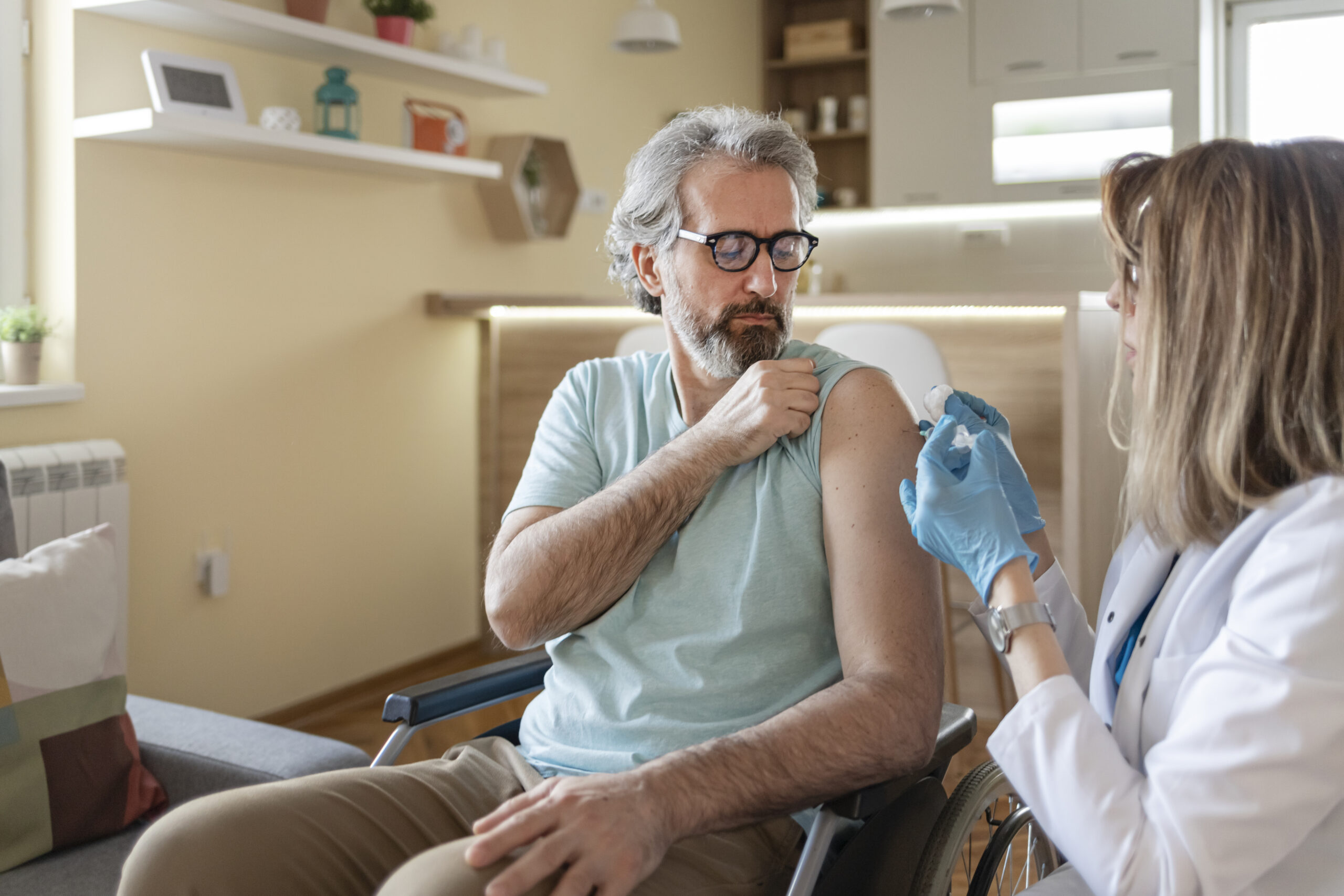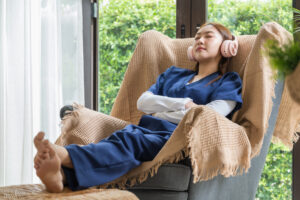Fall is here, and although it brings beautiful colors, crisp air and warm drinks, it also increases the rates of cold, flu and other respiratory viruses such as respiratory syncytial virus (RSV) and COVID-19. If you are immunocompromised or medically fragile, protecting your health during this season is essential. For those without a strong immune system, these common viruses can be severe. In this article, we’ll discuss why these infections are so serious and how to avoid getting sick.
Why are infections and viruses so dangerous?

For example, an adult with a healthy immune system with RSV may experience mild cold-like symptoms, while an immunocompromised one may develop pneumonia or a lung infection. It could even worsen conditions such as asthma, chronic obstructive pulmonary disease and congestive heart failure.
How do I prevent viruses?
1. Get vaccinated
There are several vaccines available to immune-suppressed and chronically ill individuals. First, be sure to get your annual flu vaccination. The flu vaccine is developed to protect against the three or four most prevalent strains of the virus circulating that year. Although the vaccine may not prevent you from catching the flu, it can help you prevent complications.
Next, make sure you are up-to-date on your COVID-19 vaccinations. The Centers for Disease Control and Prevention recommend that moderately or severely immunocompromised individuals aged six months and older need at least one dose of the updated Pfizer-BNTech or Moderna COVID-19 vaccinations if they have been vaccinated previously. Those who haven’t gotten any vaccinations should get up to three doses.
Lastly, talk to your doctor about the RSV vaccination. The CDC says adults over 60 with underlying medical conditions are at high risk for severe RSV. In addition to older people, RSV can cause serious illness in people with chronic medical conditions, those who live in nursing homes or long-term care facilities and those who are frail.
2. Avoid crowds
If possible, stay away from crowded areas where you may have contact with sick people. Poorly ventilated and congested spaces can lead to more virus transmission, especially since some people can be contagious without realizing it. If you have to be in a crowded area, make sure to wash your hands frequently and avoid contact with others.
3. Wear a mask
Another option to avoid getting sick this season is to wear a well-fitting, high-quality mask or respirator. Masking can help prevent contracting flu and RSV in addition to COVID-19.
Dr. Karen Jubanyik, an emergency medical specialist with Yale Medicine, recommends that individuals of any age with underlying medical conditions should consider wearing a mask when visiting the doctor or hospital, going shopping, traveling on public transportation, and attending events and holiday celebrations. Wearing a mask is not required in most locations, but making the best decisions for your health and well-being is important.
4. Seek medical attention
You know your body and how it usually feels. You should seek medical attention immediately if you feel like you may be coming down with something or experiencing new or different symptoms. Getting help early on can help reduce the severity of your illness and avoid long-term complications.
In conclusion, being aware and proactive about guarding your health during the fall season is important. While the presence of cold, flu, RSV, and COVID-19 viruses circulating can be concerning, there are ways to reduce your risk of illness. If you or a loved one is immunocompromised or medically fragile, consider getting extra support from home healthcare services. Maxim Healthcare Services staffs caregivers specializing in care for adults and children – helping them live full, healthy lives in their homes. Visit our locations page for more information on our home healthcare services near you!



